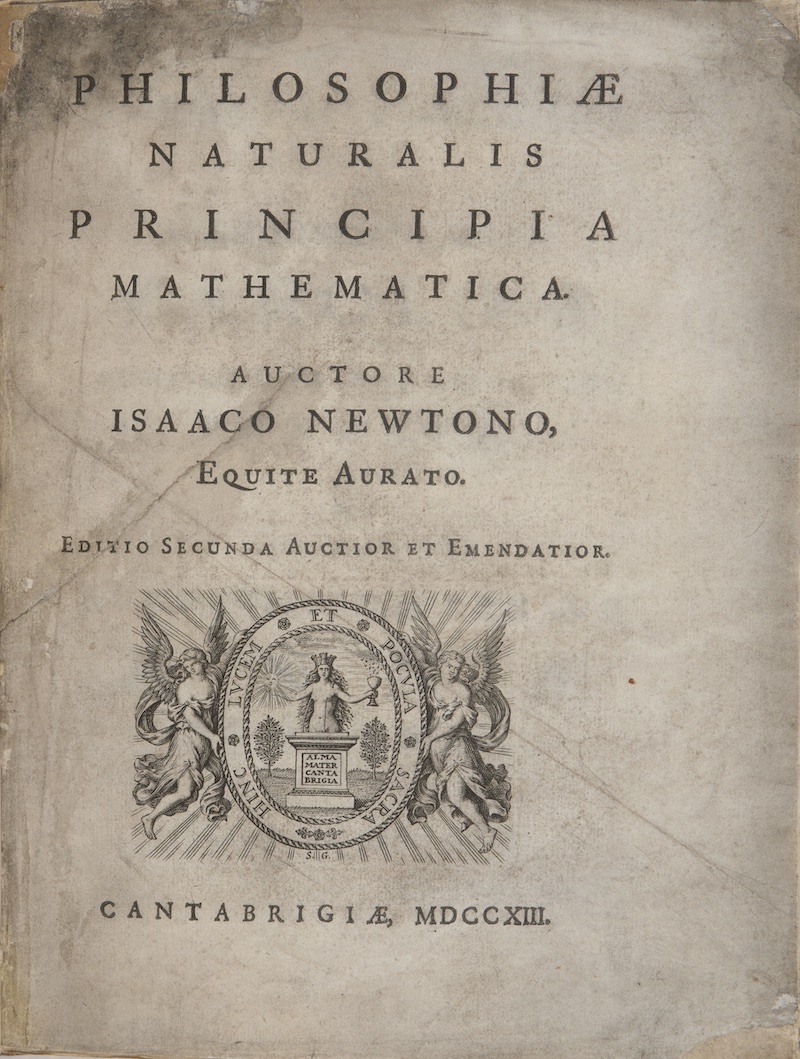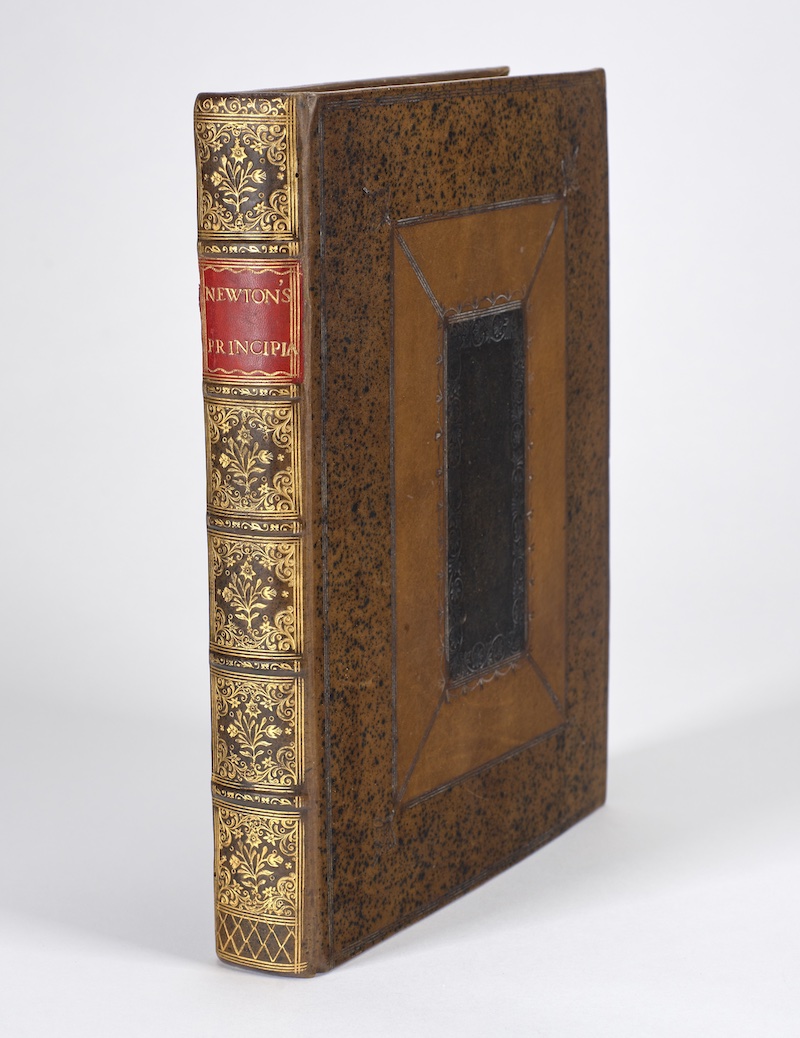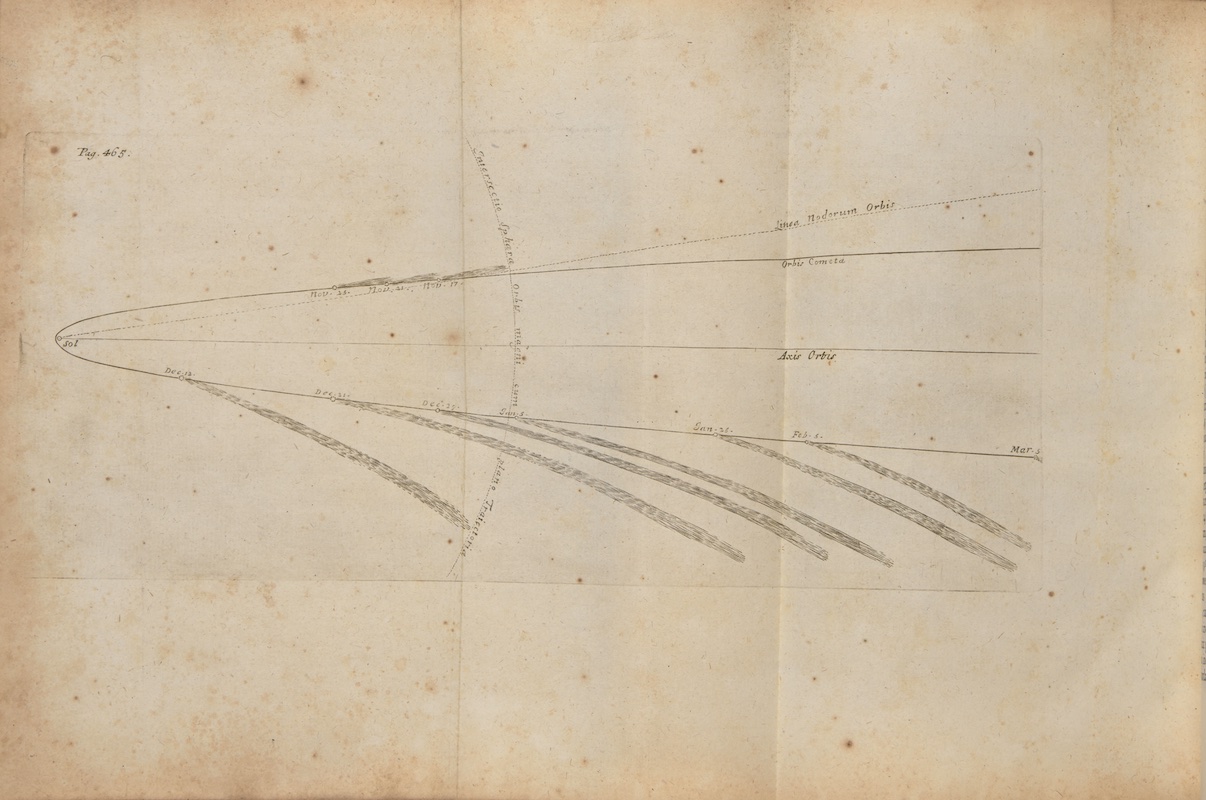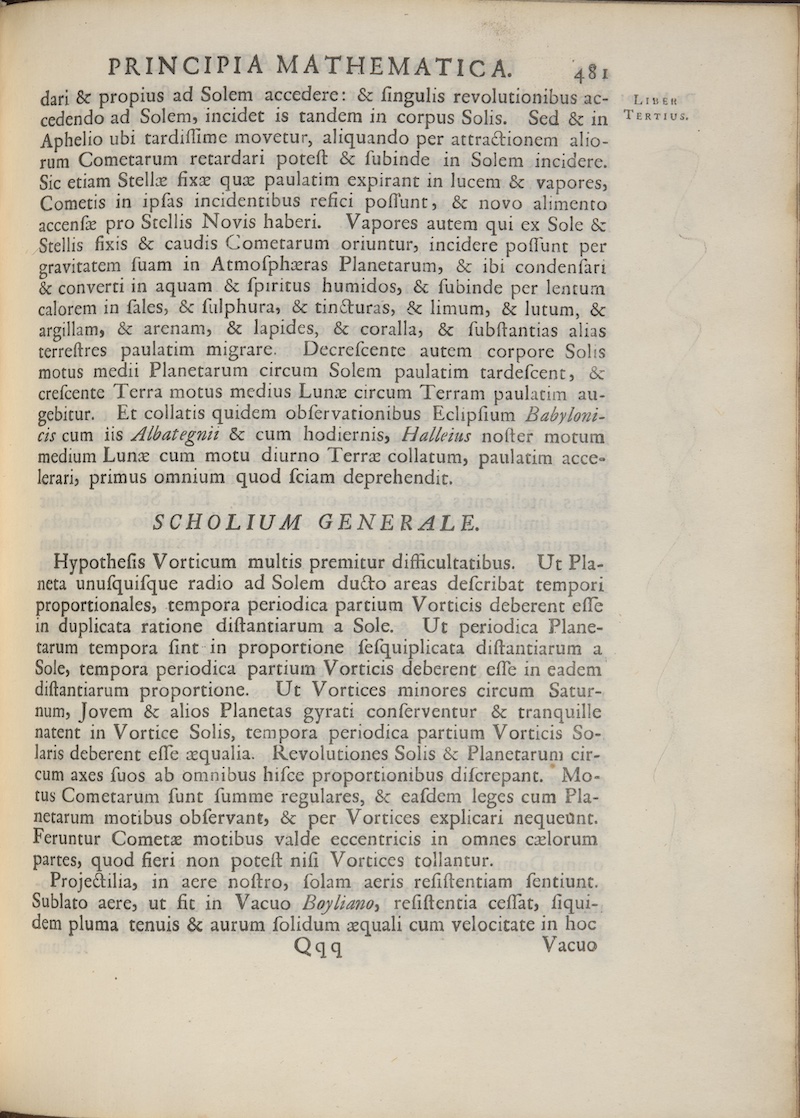“perhaps the greatest intellectual stride that it has ever been granted to any man to make” – Einstein on Newton’s Principia
NEWTON, ISAAC. Philosophia Naturalis Principia Mathematica
Cambridge, 1730
4to. Folding plate of a cometary orbit at p. 465. Finely bound in paneled calf, spine gilt, red morocco label. First few leaves soiled and worn with restoration, else a very good copy. Half calf case.
SECOND EDITION. Only 750 copies were printed. Newton’s Principia is “generally described as the greatest work in the history of science. Copernicus, Galileo, and Kepler had certainly shown the way; but where they described the phenomena they observed, Newton explained the underlying universal laws. The Principia provided the great synthesis of the cosmos, proving finally its physical unity” (PMM).
This treatise on dynamics and gravitation is undoubtedly “the most influential scientific publication of the 17th century” (Horblit). Newton presents his three laws of motion, discusses the movement of bodies through gases and liquids, defines mass and force, presents the corpuscular theory of lights, and sets forth the principle of universal gravitation.
This important edition contains a second preface by Newton as well as considerable additions, with the chapters on the lunar theory and the theory of comets being much enlarged. 80% of the pages include revisions by Newton. This edition was edited by Roger Cotes. In his preface, Cotes attacks Cartesian philosophy, then still in vogue in the universities, and refutes the assertion that Newton’s theory of attraction is a causa occulta.
This edition contains the first appearance of the Scholium Generale, “possibly the most famous of all of Newton’s writings” (Koyré and Cohen, Introduction to Newton’s “Principia”). The first edition “ended casually as if the author had grown weary of the task and had suddenly decided to write no more. But a Scholium Generale was added to the second edition in which Newton sums up the purpose and accomplishment of the work” (More). Here Newton explains his experimental philosophy, noting that he deduces propositions from phenomena and renders them general by induction, rather than relying on hypotheses which may be prejudicial. Newton famously stated, “hypothese non fingo” (I frame no hypotheses). Further, he states that his system presupposes, by its very regularity, the existence of a divine Creator.
The first edition of the Principia now commands many hundreds of thousands of dollars on the few occasions that it surfaces. The second is equally rare in the market.
Please Inquire






